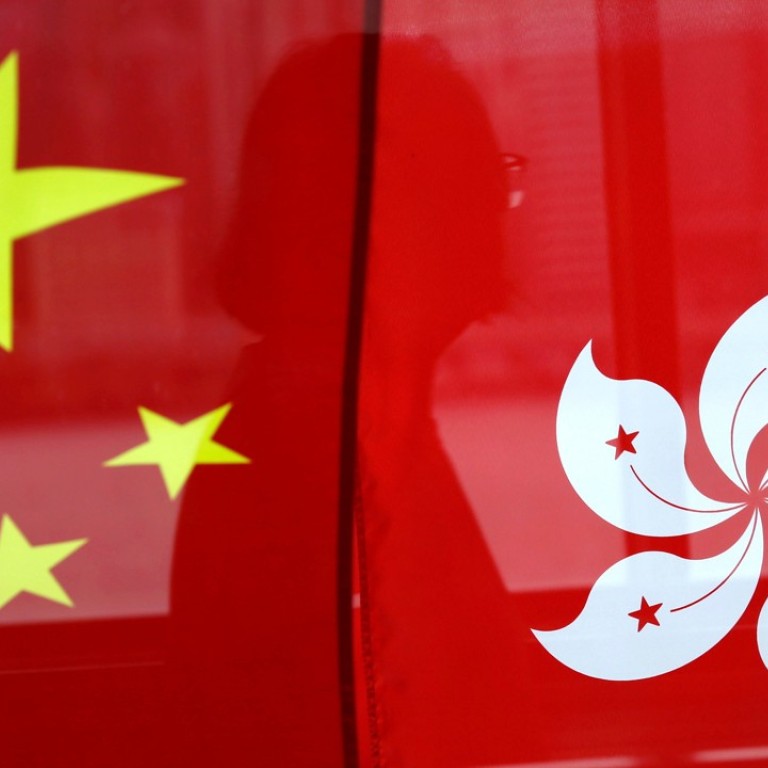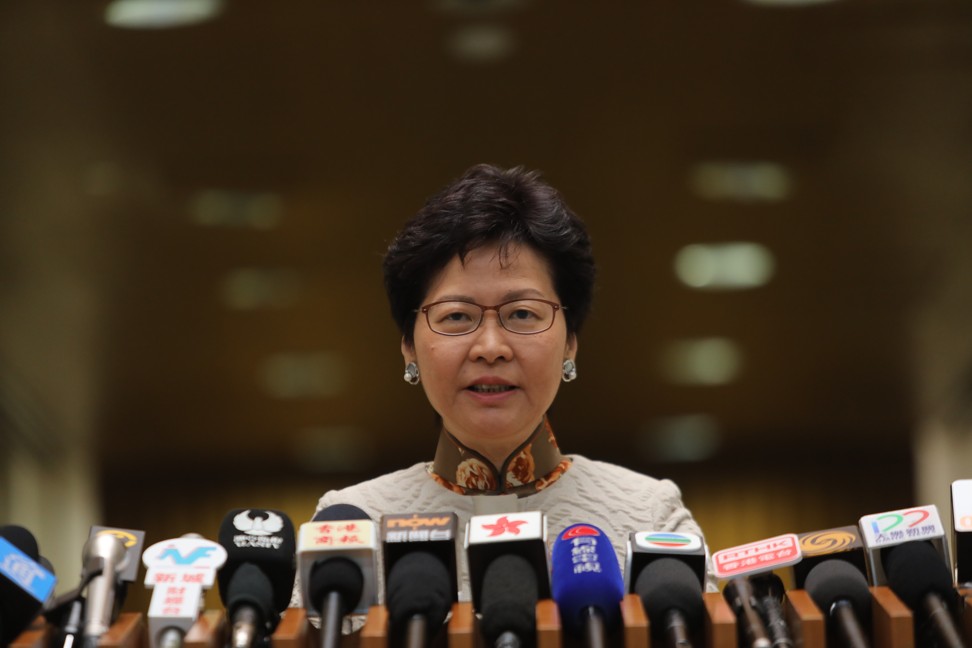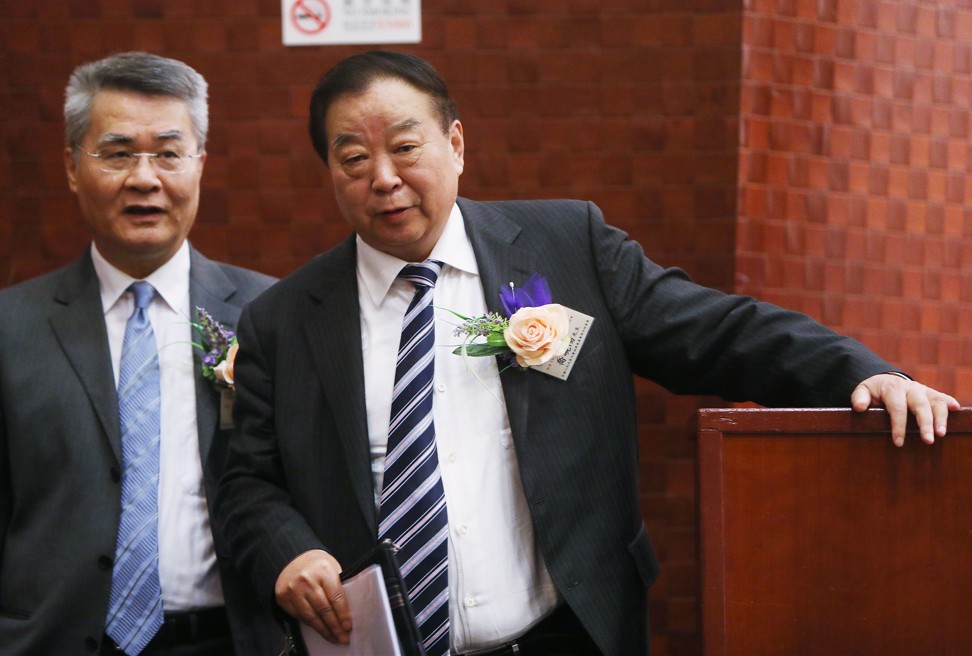
Nothing wrong with school history textbooks reflecting Chinese view of Hong Kong handover, Carrie Lam says
Chief executive says people are overreacting to government-appointed panel’s opposition to description of Hong Kong’s 1997 shift from British to Chinese rule in school textbook
There is nothing wrong in a government-appointed committee wanting school history textbooks to be more precise in the description of Hong Kong’s return to China in 1997, and people should not overreact to these efforts, the city’s leader said on Tuesday.
Other phrases of concern for the committee in secondary school Chinese history textbooks included “Hong Kong is located south of China” and “the Chinese Communist Party’s one-party rule”.
The committee’s findings mean any future book using the phrases would be unlikely to make the Education Bureau’s recommended reading list.

“China has never handed Hong Kong’s sovereignty to others,” Lam said, adding that it was more accurate to say China “resumed sovereignty” over Hong Kong.
Lam was weighing in on a row that began last week, when Secretary for Education Kevin Yeung Yun-hung said China had “always had sovereignty over Hong Kong”, and school textbooks should not describe the handover as “taking back” of sovereignty.
He made these remarks after local media reported that the textbook review committee opposed the use of these phrases in textbooks. Opposition lawmakers were sceptical about Yeung’s comments and accused him of political censorship.
On Tuesday, Lam acknowledged that “taking back” had previously been used to describe the handover. “But if we could be a bit more precise and accurate, especially when it comes to textbooks, there is no harm in doing so,” she said.
Trying to put an end to the furore, she said the public had been “too sensitive” and was reading too much into the disagreement.
“It was not me changing the phrase. It’s for the committee [to make sure] that textbooks used in Hong Kong are accurate and precise,” she said. “So I have every confidence these experts are doing that important task with one single objective in mind: to ensure a high degree of precision in our textbooks.”
Yeung also defended the committee on Tuesday, saying their role was to ensure education materials “fulfilled certain qualities and standards”.
Little is known about the experts on the textbook committee, just that they comprise a mix of subject teachers, retired educators and academics, among others. The committee has sub-groups that scrutinise textbooks on different subjects.
Education sector lawmaker Ip Kin-yuen asked if the committee’s proposed changes were really necessary. School principal James Lam Yat-fung, executive committee member of the Hong Kong Subsidised Secondary Schools Council, said publishers could “counter-propose” descriptions to the textbook committee if they did not share its view.
In large part, the semantic disagreement stems from the interchangeable nature of the Chinese words used to describe the handover.
To “take back or recover” is a translation of the Chinese phrase 收回 (shou hui), which literally means “collect back”. The committee wants to be careful and use 恢復 (hui fu), which implies the return or restoration of something to its original or natural state.
Further complicating matters is that Chinese state leaders and even Hong Kong officials have used both terms.

During his visit in 1999, then Chinese vice-president Hu Jintao used “shou hui” when he said the notion of “one country, two systems” had fulfilled “the long-cherished desire of the Chinese people to recover Hong Kong”.
And in a seminar last Saturday, Qiao Xiaoyang, the retired chairman of the National People’s Congress law committee, used the same term when he said China managed to resort to a “peaceful means of recovering Hong Kong” in 1997.
The city’s mini-constitution, the Basic Law, uses both terms in its preamble when it refers to the joint declaration signed by Britain and China “affirming that [the Chinese government] will resume the exercise of sovereignty over Hong Kong”.
Hong Kong should support Communist Party and not cross ‘legal line’ to oppose socialism, Qiao Xiaoyang says
Lam also said she could not offer any guarantees that people calling for an end to the one-party system on the mainland would not be punished.
The chief executive said the city had entered a new constitutional order in 1997, and “should respect that China is a socialist system”. She was speaking after Qiao warned it was “unconstitutional” for some Hongkongers to publicly oppose the Chinese system.
However, Lam did not directly respond to his remark that the “Chinese Communist Party is worth supporting”.

